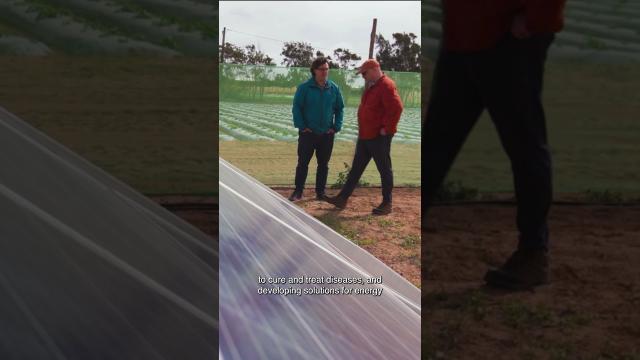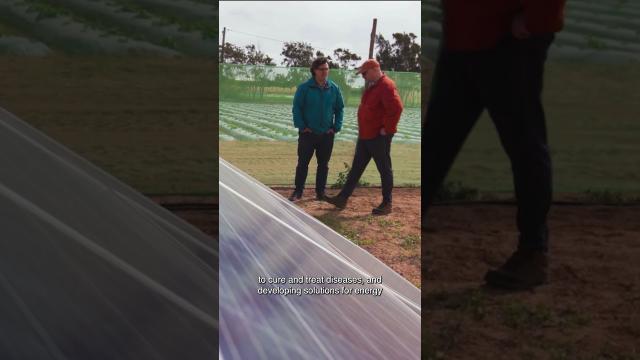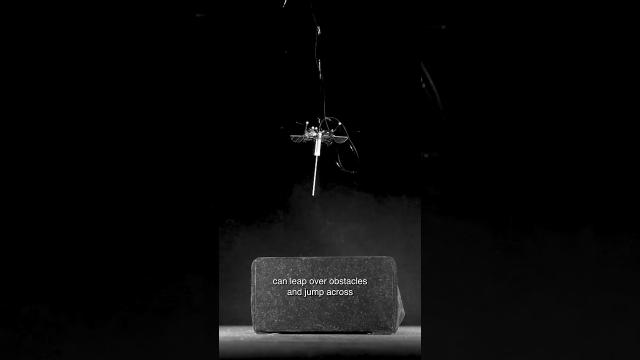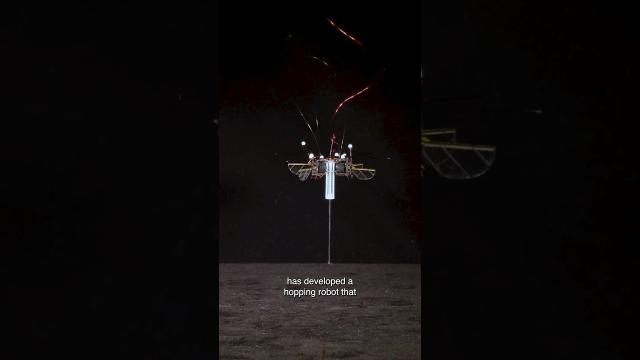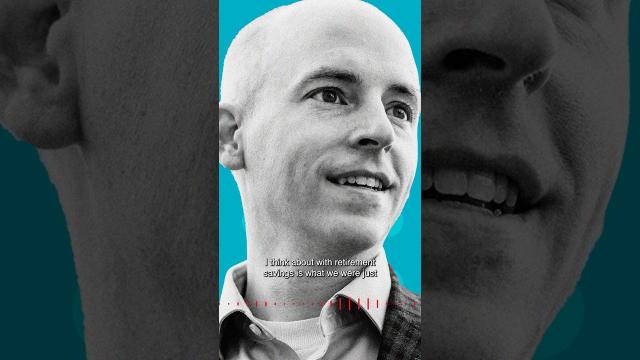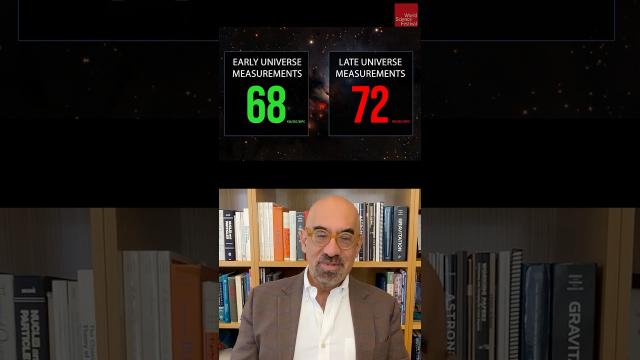Time Travel, Teleportation & Science
Time travel is the concept of moving between different points in time in a manner analogous to moving between different points in space, generally using a theoretical invention, namely a time machine. It has a commonly recognized place in philosophy and fiction, but has a very limited application in real world physics, such as in quantum mechanics or wormholes.
Although the 1895 novel The Time Machine by H. G. Wells was instrumental in moving the concept of time travel to the forefront of the public imagination, The Clock That Went Backward by Edward Page Mitchell was published in 1881 and involves a clock that allowed three men to travel backwards in time.[1][2] Non-technological forms of time travel had appeared in a number of earlier stories such as Charles Dickens' A Christmas Carol. Historically, the concept dates back to the early mythologies of Hinduism (such as the Mahabharata), Buddhism, and Islam through ancient folk tales. More recently, with advancing technology and a greater scientific understanding of the universe, the plausibility of time travel has been explored in greater detail by science fiction writers, philosophers, and physicists.
Teleportation, or Teletransportation, is the theoretical transfer of matter or energy from one point to another without traversing the physical space between them. It has a commonly recognized place in science fiction literature, film, and television, but as yet has a very limited application in real world physics, such as quantum teleportation or the study of wormholes.
Science (from Latin scientia, meaning "knowledge") is a systematic enterprise that builds and organizes knowledge in the form of testable explanations and predictions about the universe. In an older and closely related meaning, "science" also refers to a body of knowledge itself, of the type that can be rationally explained and reliably applied. A practitioner of science is known as a scientist.
In modern usage, "science" most often refers to a way of pursuing knowledge, not only the knowledge itself. It is also often restricted to those branches of study that seek to explain the phenomena of the material universe.
Source : Wikipedia
-
1:46:55 New
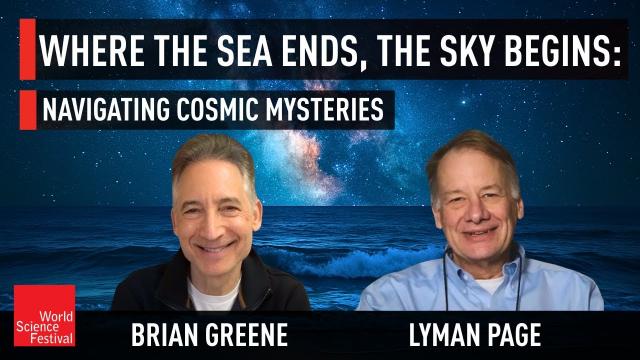
Where the Sea Ends, the Sky Begins: Navigating Cosmic Mysteries
Added 8 Views / 0 LikesBreakthrough Prize Winner Lyman Page joins Brian Greene to discuss his unusual path into physics, his extraordinary workmeasuring the cosmic background radiation and his ongoing quest to shed light on dark matter, dark energy, gravitational waves and othe
-
01:45
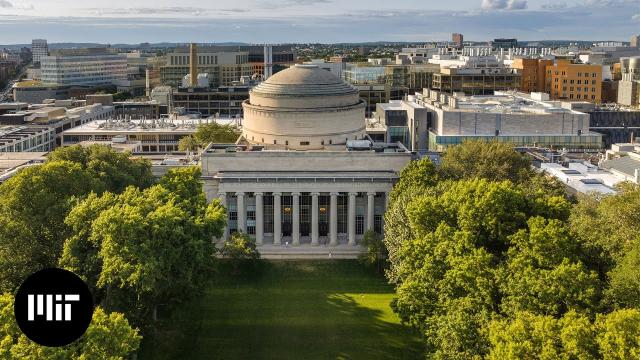
This is MIT
Added 77 Views / 0 LikesWatch more videos from MIT: http://www.youtube.com/user/MITNewsOffice?sub_confirmation=1The Massachusetts Institute of Technology is an independent, coeducational, privately endowed university in Cambridge, Massachusetts. Our mission is to advance knowled
-
1:33:07

Is Dark Matter the Wrong Idea?
Added 99 Views / 0 LikesWithout dark matter and dark energy, the equations of physics don’t match what we observe in the cosmos. But what if it’s not the universe that needs extra ingredients—but the equations that need a rewrite? Renowned theorist Erik Verlinde joins Brian Gree
-
02:29
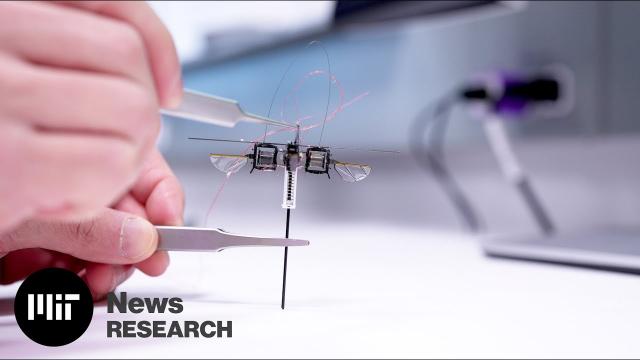
Tiny hopping robots
Added 65 Views / 0 LikesMIT engineers developed an insect-sized jumping robot that can traverse challenging terrains while using far less energy than an aerial robot of comparable size. This tiny, hopping robot can leap over tall obstacles and jump across slanted or uneven surfa
-
32:03
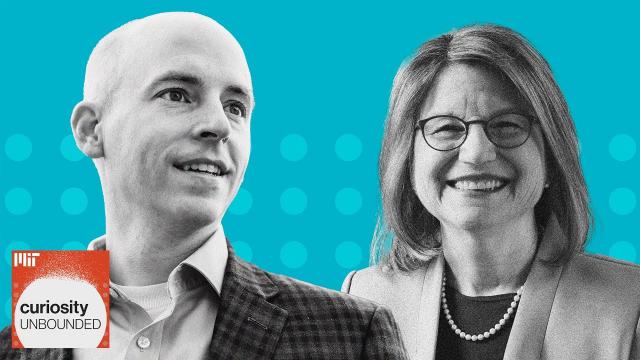
Curiosity Unbounded, Ep. 15: Making sense of your dollars
Added 90 Views / 0 LikesChristopher Palmer is an Associate Professor of Finance at the MIT Sloan School of Management. He is also a Faculty Research Fellow at the National Bureau of Economic Research, and an Affiliate with the Jameel Poverty Action Lab, based here at MIT. In thi
-
1:54:54
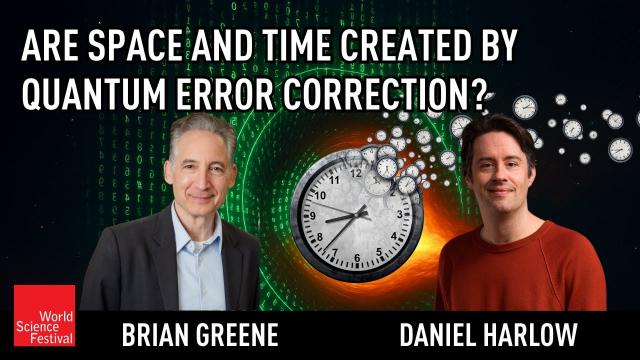
Are Space and Time Created by Quantum Error Correction?
Added 72 Views / 0 LikesMIT physicist Daniel Harlow joins Brian Greene to explore black holes, holography, and the surprising connection between spacetime and algorithms that perform quantum error correction.This program is part of the Big Ideas series, supported by the John Tem
-
1:05:31
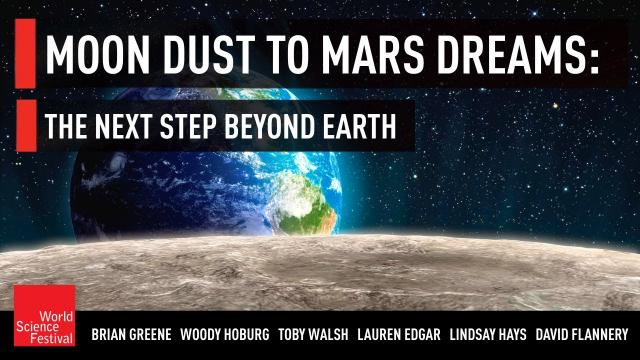
Moon Dust to Mars Dreams: The Next Step Beyond Earth
Added 73 Views / 0 LikesAstronaut Woody Hoburg and leading planetary scientists join Brian Greene to explore ambitious new missions set to propel humanity deeper into space and sharpen our quest to discover life beyond Earth.This program is part of the Big Ideas series, supporte
-
1:08:12
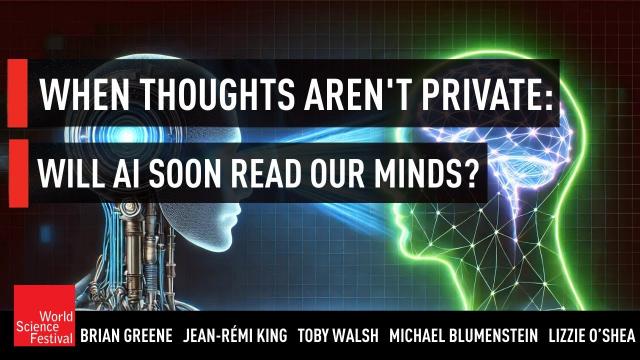
When Thoughts Aren't Private: Will AI Soon Read our Minds?
Added 32 Views / 0 LikesLeading researchers join Brian Greene to explore how AI is pushing mind reading technologies rapidly forward.This program is part of the Big Ideas series, supported by the John Templeton Foundation. Participants: Jean-Rémi King, Michael Blumenstein, Lizzi
-
01:26

A supermassive black hole at the center of our galaxy? #blackhole #physics #womeninstem
Added 26 Views / 0 Likes -
1:16:22

Your Brain On 34,000 Hours of Meditation: When Science and Tech Meet Spirituality
Added 31 Views / 0 LikesRichard Davidson, Karen Armstrong, and Kate Stockly, join Brian Greene to discuss the psychological and physiological impacts of sacred experiences, and how technology may make such experiences more readily available.This program is part of the Big Ideas
-
57:28
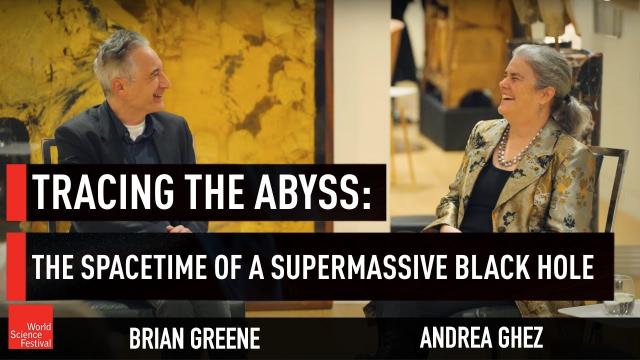
Tracing the Abyss: The Spacetime of a Supermassive Black Hole
Added 35 Views / 0 LikesNobel Laureate Andrea Ghez joins Brian Greene to explore her decade's long pursuit of the supermassive black hole at the center of the Milky Way Galaxy.This program is part of the Big Ideas series, supported by the John Templeton Foundation. Participant:
-
01:23
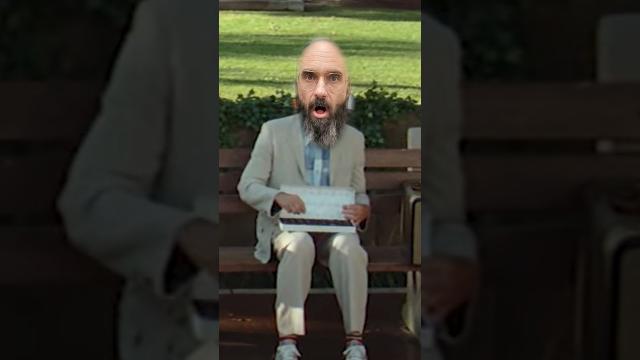
The Fastest Way To Lose
Added 41 Views / 0 Likeshttps://www.curiositybox.com/Peg solitaire variant images adapted from work by Júlio Reis: https://commons.m.wikimedia.org/wiki/File:Peg_Solitaire_game_board_shapes.svg
-
28:35
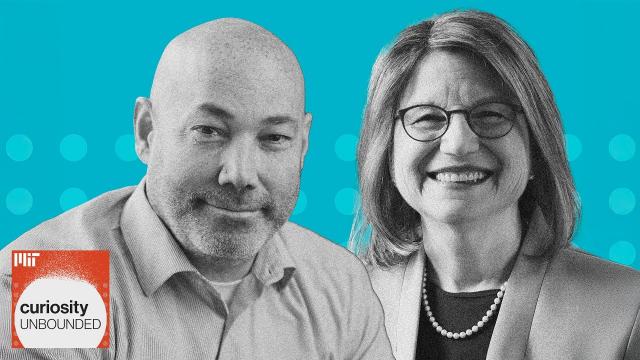
Curiosity Unbounded, Ep. 14: Putting a glacier in its place
Added 34 Views / 0 LikesBrent Minchew is an Associate Professor of Geophysics in the department of Earth, Atmospheric, and Planetary Sciences at MIT. He studies the behavior of glaciers in response to environmental factors and is dedicated to understanding sea level rise and exp

